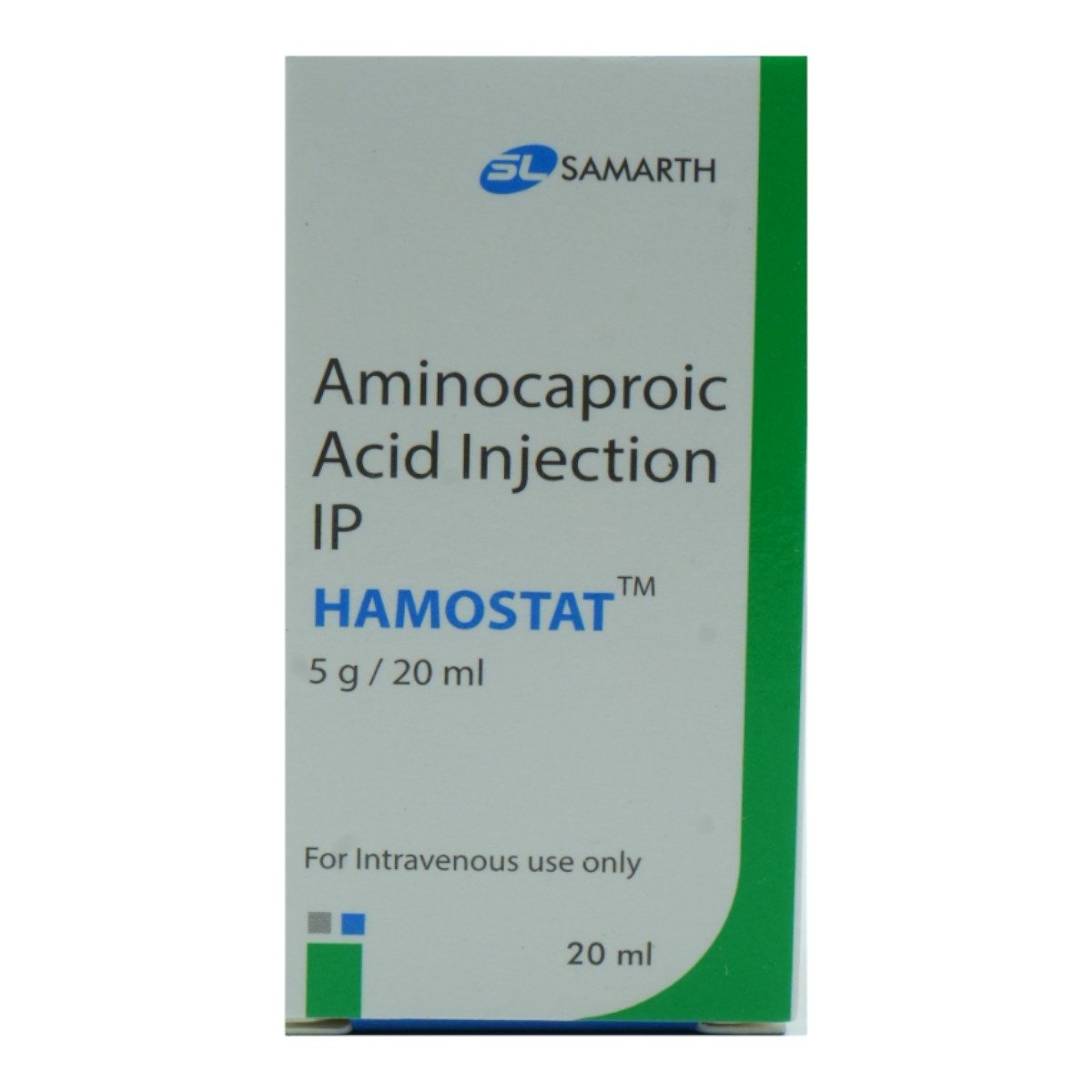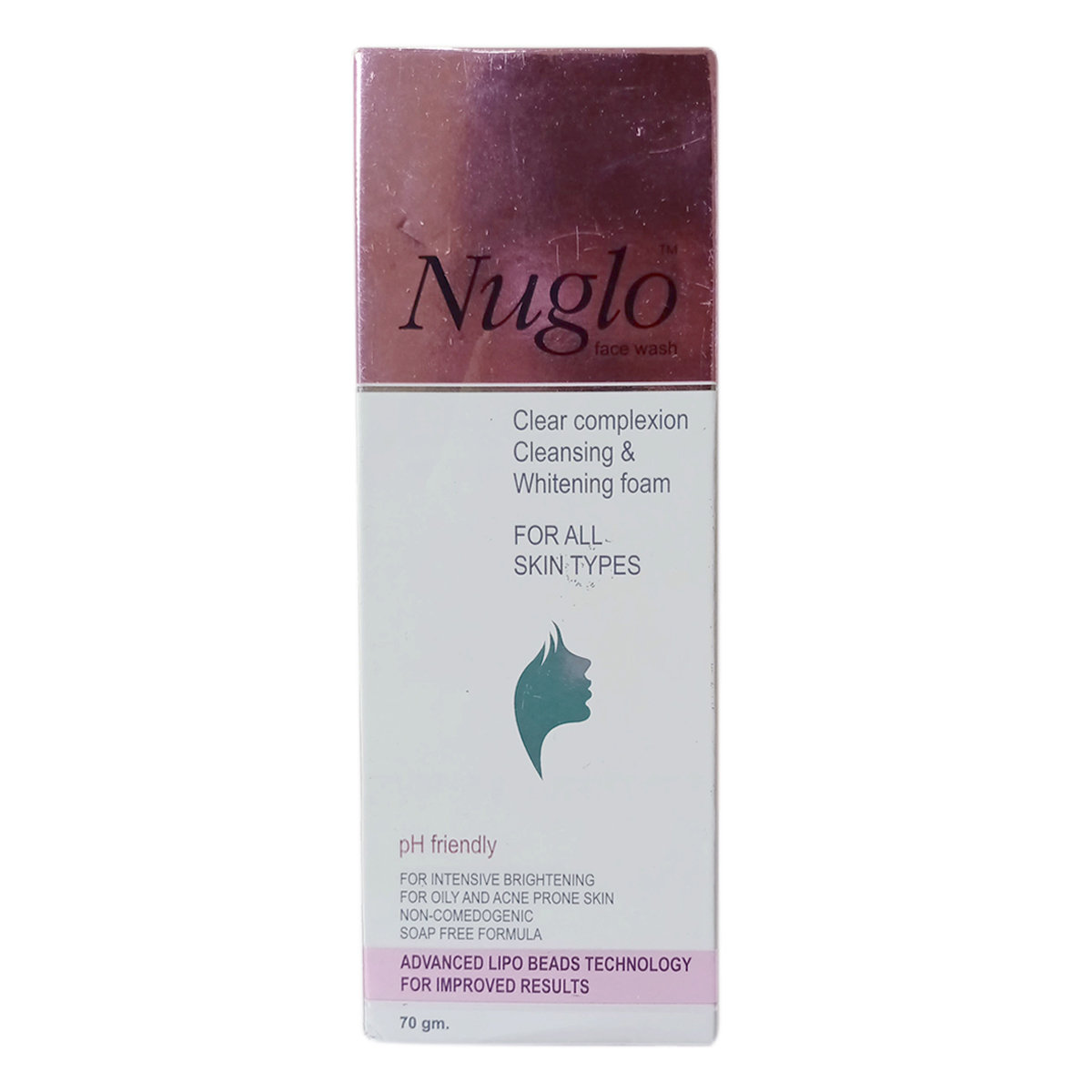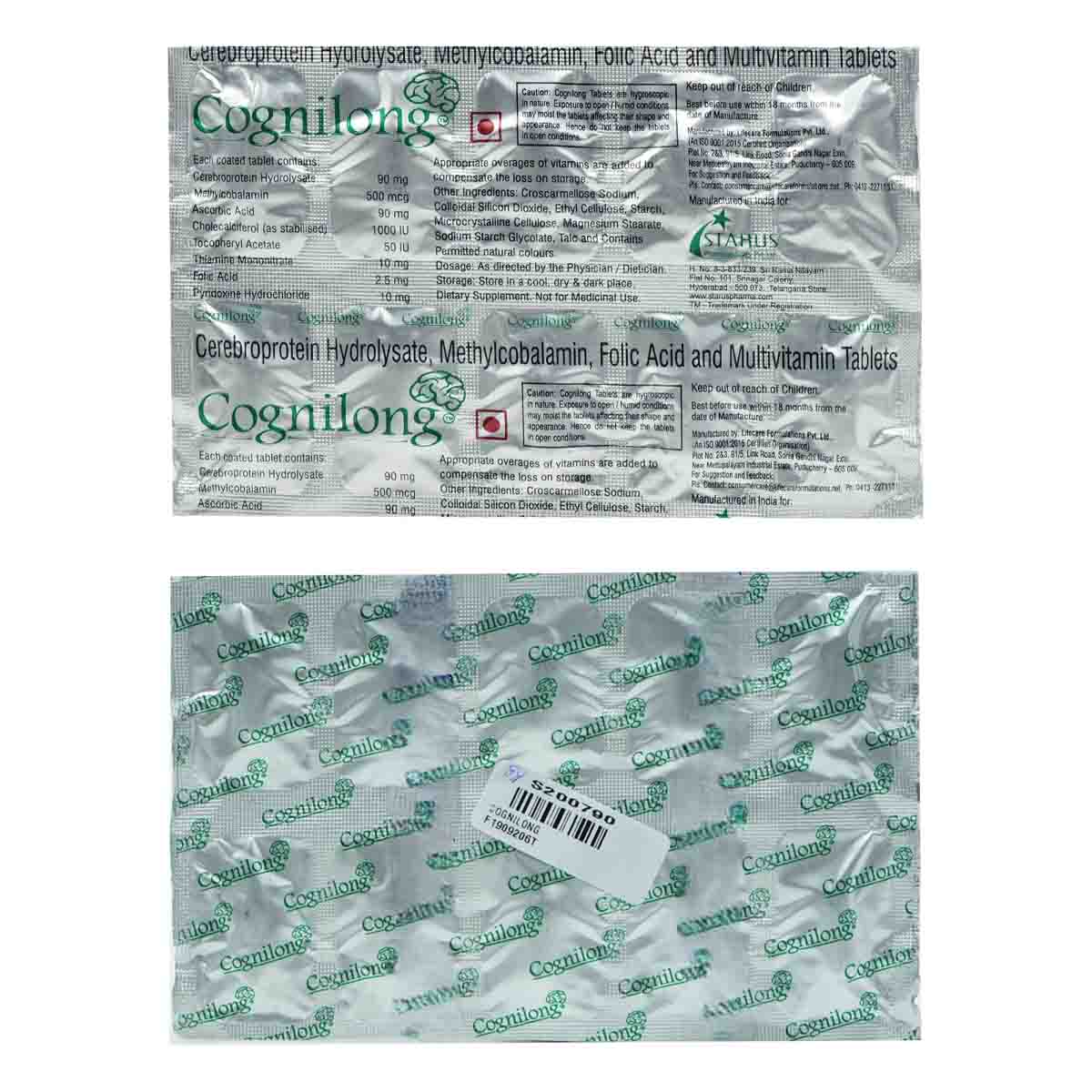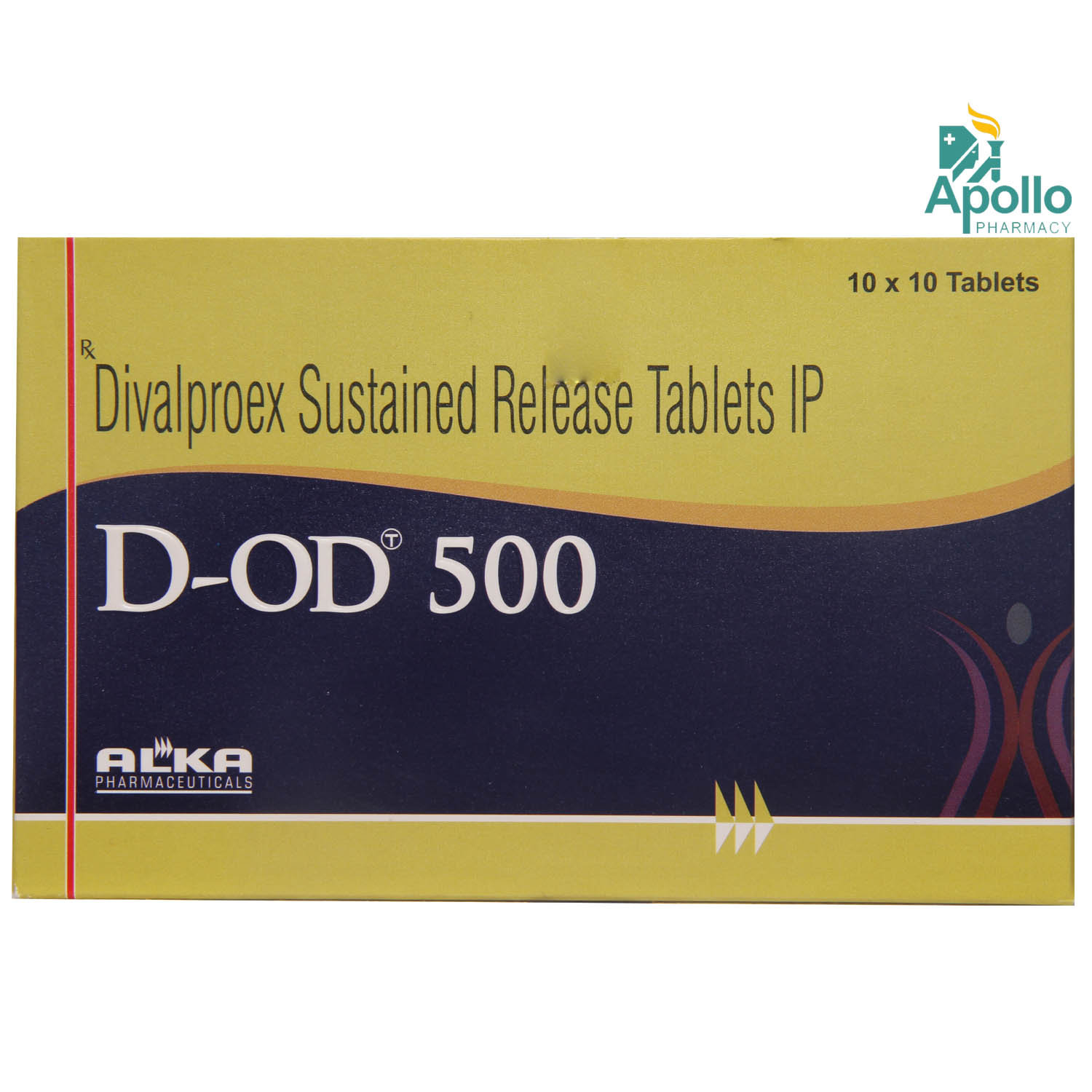Aminocaproic Acid
About Aminocaproic Acid
Aminocaproic Acid belongs to a group of medicines known as antifibrinolytics used to treat excessive bleeding caused by the rapid breakdown of blood clots, which can occur during surgery, in bleeding disorders, or in certain cancers.
Aminocaproic Acid contains aminocaproic acid as its active ingredient, which helps prevent the breakdown of blood clots. It inhibits plasmin, a substance that dissolves clots, helping in the control of excessive bleeding.
Common side effects of Aminocaproic Acid include nausea, vomiting, stomach pain or cramping, diarrhoea, headache, dizziness, confusion, pain or redness at the site of injection, blurred or decreased vision, anxiety, ringing in the ears, and swelling of the arms, hands, feet, or lower legs. Most of these side effects are temporary, do not require medical attention, and tend to resolve gradually over time. However, if any of these side effects persist for longer, please contact your doctor immediately.
Before starting treatment with Aminocaproic Acid, inform your doctor if you are allergic to any of its components. Consult your doctor if you are breastfeeding or pregnant. Aminocaproic Acid should not be given to newborns. Do not drive or operate machinery, as this medicine may cause dizziness or blurred vision. Let your doctor know if you have any pre-existing medical conditions or liver/kidney diseases before receiving Aminocaproic Acid.
Uses of Aminocaproic Acid
Aminocaproic Acid is used in the treatment of bleeding during and after surgery. The detailed uses of Aminocaproic Acid are as follows:<br/> • Treatment of bleeding during and after surgery: Aminocaproic Acid is used to control bleeding during or after surgeries like heart, liver, by enhancing hemostasis.<br/> • Bleeding Management: Aminocaproic Acid also helps manage bleeding in people with certain bleeding disorders or cancers (prostate, lung, stomach, cervical) and controls bleeding in various conditions.<br/>
Medicinal Benefits
Aminocaproic Acid is an antifibrinolytic medication used to treat excessive bleeding during or after heart and liver surgeries, certain cancers, and bleeding disorders. Its active ingredient, aminocaproic acid, works by stabilizing blood clots through the inhibition of plasmin, which prevents excessive fibrinolysis (process of breaking down the blood clots). Additionally, it can be used for urinary tract bleeding and pregnancy-related issues such as placental abruption.
Directions for Use
- Follow your doctor's instructions on the dosage and timing of this medication.
- Aminocaproic Acid is administered by the doctor or healthcare professional.
- Do not self-administer.
Storage
Side Effects of Aminocaproic Acid
- Nausea
- Vomiting
- Stomach pain or cramping
- Diarrhoea
- Headache
- Dizziness
- Confusion
- Pain or redness at the site of injection
- Blurred or decreased vision
- Anxiety
- Ringing in the ears
- Swelling of the arms, hands, feet, or lower legs
Drug Warnings
Before starting treatment with Aminocaproic Acid, inform your doctor if you are allergic to any of its components. Also, let the doctor know about your health conditions and the medications you are taking to avoid potential interactions. You are recommended to contact your doctor before taking Aminocaproic Acid if you are pregnant, planning to become pregnant, or breastfeeding. Talk to your doctor if you have any medical conditions, such as liver/kidney problems. Do not drive or operate heavy machinery while on treatment with Aminocaproic Acid.
Drug Interactions
Drug-Drug Interaction: Inform the doctor if you are taking anti-neoplastic agents (tretinoin, carfilzomib), monoclonal antibodies (idarucizumab), and prothrombin complex.
Drug-Food Interaction: No interactions found.
Drug-Disease Interaction: Aminocaproic Acid is not recommended in conditions like myopathy (muscle disease/weakness), thrombohemorrhagic disorders (blood clotting and bleeding issues), disseminated intravascular coagulation and severe liver/kidney problems.
Drug-Drug Interactions Checker List:
Safety Advice

Alcohol
consult your doctorAminocaproic Acid may interact with alcohol, increasing the risk of dizziness. Please consult the doctor before using Aminocaproic Acid if you consume alcohol.

Pregnancy
consult your doctorAminocaproic Acid should be used during pregnancy only if necessary. If you are pregnant or planning to become pregnant, please consult your doctor before using Aminocaproic Acid.

Breast Feeding
cautionIt is unknown whether aminocaproic acid passes into breast milk. Therefore, consult your doctor if you are a breastfeeding mother. Your doctor will prescribe Aminocaproic Acid only if the benefits outweigh the risks.

Driving
consult your doctorDo not drive or operate machinery during treatment with Aminocaproic Acid, as it may cause blurred vision or dizziness.

Liver
consult your doctorPlease consult your doctor if you have any pre-existing history of liver diseases before using Aminocaproic Acid.

Kidney
consult your doctorPlease consult your doctor if you have any pre-existing history of kidney diseases before receiving Aminocaproic Acid.

Children
consult your doctorAminocaproic Acid is not recommended for children below 12 years and should not be given to newborns. Please consult a doctor before administering Aminocaproic Acid to children.
Habit Forming
Diet & Lifestyle Advise
- Maintain a diet with whole grains, vegetables, and fruits.
- Avoid saturated fats, added sugars, and excessive salt.
- Manage strenuous activities through meditation and yoga.
- Refrain from eating junk food and fast food.
- Quit smoking and avoid alcohol consumption.
- Follow a low-fat, low-cholesterol, and high-fiber diet.
Special Advise
Inform your doctor that you are receiving Aminocaproic Acid before undergoing any medical check-ups, as it may affect your results.
Patients Concern
Disease/Condition Glossary
Perioperative blood management: It is a process to stop or prevent bleeding during surgery and reduce the need for blood transfusions.
FAQs
Aminocaproic Acid is used to treat excessive bleeding caused by the rapid breakdown of blood clots, which can occur during surgery, in bleeding disorders, or in certain cancers.
Aminocaproic Acid contains aminocaproic acid as its active ingredient, which works by preventing the breakdown of blood clots. It inhibits plasmin, a substance that dissolves clots, helping in the control of excessive bleeding.
No, Aminocaproic Acid is not habit-forming. Please contact a doctor if you have any concerns.
Aminocaproic Acid causes side effects such as nausea, vomiting, stomach pain or cramping, diarrhoea, headache, dizziness, confusion, pain or redness at the site of injection, blurred or decreased vision, anxiety, ringing in the ears, and swelling of the arms, hands, feet, or lower legs. Contact a doctor if these side effects persist or worsen.
You are recommended not to stop taking Aminocaproic Acid even if you feel better, as you may experience unwanted side effects. Therefore, continue to take Aminocaproic Acid for the prescribed duration as advised by your doctor.
Aminocaproic Acid should be stored at temperatures not exceeding 25°C. Do not freeze. Keep it protected from light and out of reach of children.
Available Medicines for
Aminocaproic Acid

Ahaglow S Foaming Face Wash 100 ml | Salicylic Acid & Glycolic Acid
1 Bottle
₹798.1 (MRP 877)9%Off
cashback: 0










